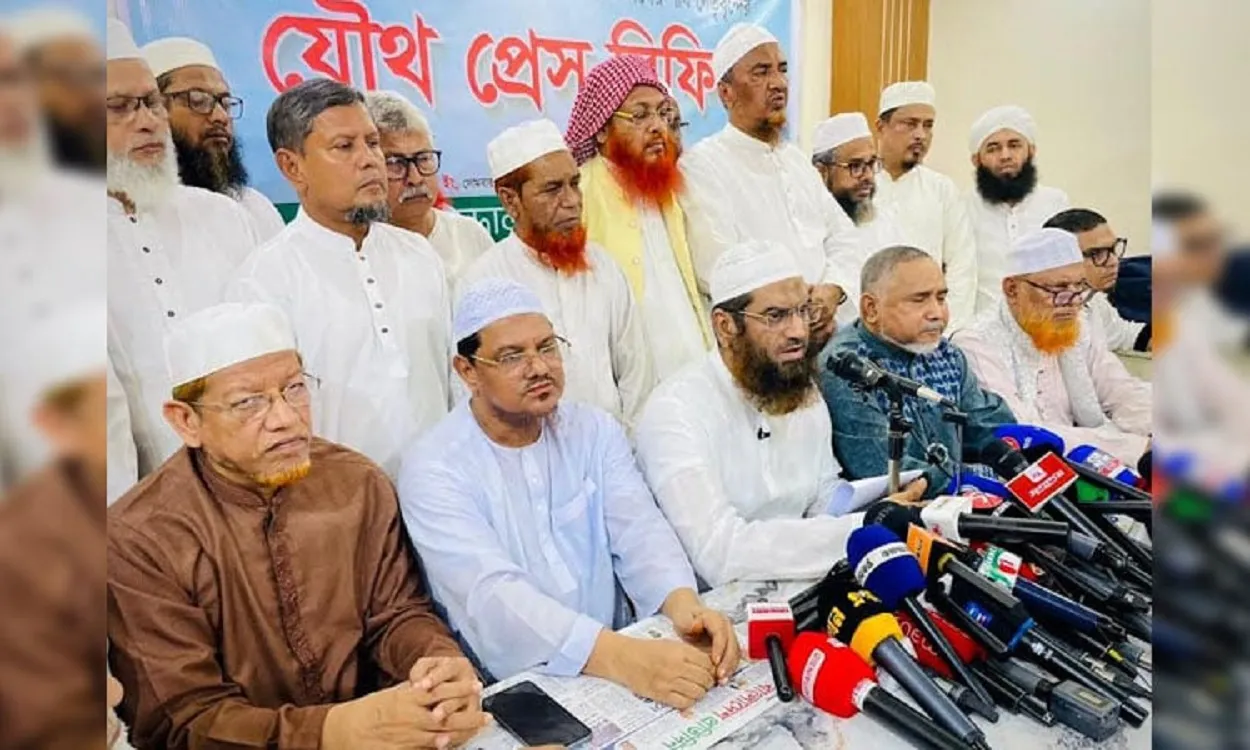


A major political development unfolded today as an eight-party alliance, spearheaded by Bangladesh Jamaat-e-Islami and Islami Andolon Bangladesh (IAB), announced a stringent plan to demand the immediate implementation of the July National Charter and the holding of a separate national referendum to ensure its legal foundation.
The decision, made following a high-level alliance meeting, sets the coalition on a collision course with the interim government, which just yesterday issued a seven-day ultimatum demanding all political parties submit a unified decision on the referendum’s timing and content.
The alliance has announced two major protest programs to push its demands: A mass procession will be held on November 6 to submit a formal memorandum directly to the Chief Adviser (CA).
If the government fails to show "satisfactory progress" on their demands following the memorandum, the alliance will hold a large-scale mass rally in Dhaka on November 11.
The leaders outlined a five-point charter of demands at a joint press briefing: immediate issuance of an order to implement the July Charter. Holding a separate national referendum to ensure the Charter's legal basis. Retaining the revised Representation of the People Order (RPO) without any further amendments. Introducing elections under a proportional representation (PR) system. Guaranteeing justice for July Uprising victims and holding collaborators of fascism accountable.
Addressing the media, IAB Ameer Mufti Syed Muhammad Rezaul Karim (Pir Saheb Chormonai) strongly argued that the legal foundation of the July Charter is essential for the legitimacy of both the current government and the historic July Uprising itself.
"Without a legal basis, the reforms, the uprising, and even the government itself will face questions of legitimacy," he asserted. He also expressed disappointment over the current political divisions regarding the referendum's timing, reminding parties that they had previously reached a consensus on the need to hold a referendum.
The alliance's firm position to hold a separate referendum places it in direct opposition to the BNP-led alliance, which has favored holding the constitutional vote simultaneously with the next general election scheduled for the first half of February 2026. This latest move complicates the government’s efforts to forge a quick, unified path forward on the constitutional reforms.
Comment